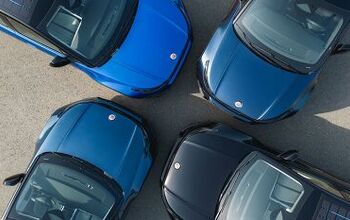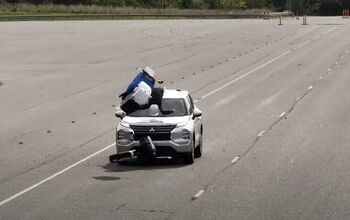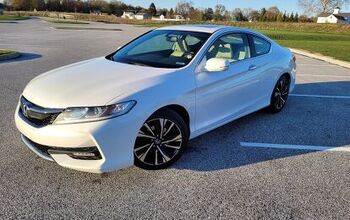General Motors Looks To Cameras To Solve Distracted Driving
Until the overlords at Google bestow their technocratic utopia of automation to every new vehicle leaving the factory, distracted driving will remain a problem in need of a solution, such as the one General Motors has in mind.
Autoblog reports GM is working on a three-way deal with Seeing Machines and Takata to install 500,000 cameras in its line of vehicles within a three- to five-year period. The cameras will track eye and head movements to determine if a driver is paying attention to the road or to the office BlackBerry, then alerting them so as to not miss the stop sign or other hazards.
Seeing Machine CEO Ken Kroeger says there could be other uses to the cameras, citing safety’s lack of sexiness. Such future uses could include anti-theft systems, ignition interlocks programmed to prevent a young driver from taking the car out past curfew, or apps that can trigger an action inside the vehicle while driving.
Seattle-based writer, blogger, and photographer for many a publication. Born in Louisville. Raised in Kansas. Where I lay my head is home.
More by Cameron Aubernon


































Comments
Join the conversation
We have had Timmys here in Maine since 2000 or so I believe. I despise phone use while driving. That being said-with the Blackberry I could fire off the rare text/email while driving without looking at the phone at all due to the keyboard layout. With the iphone and other touchscreen phones I have had since I don't even bother to try. And voice to text hates me. So whatever it is, it can wait.
Gag. The backup camera I have is nice, but come on people, why is it so hard to put the detritus down and drive the 2-ton projectile? Phones should come with HAL from 2001: A Space Odyssey as standard saying, "I'm afraid I can't do that Dave." and rendering the phone inopperable.
Regardless of the epidemic of using mobile devices while driving, I'm incensed by the idea that a computer in the car is going to start throwing a fit whenever it decides I'm not paying enough attention. I'm already unhappy that we have sensors and computer controls encouraging people to continue to be inattentive (with backup sensors, blind-spot monitoring, lane-deviation monitoring, etc). Now that we have this in place, people will simply rely on the buzzer to tell them when they haven't paid enough attention to the road ahead. I could easily see the warning buzzer further distracting the inattentive, extending the time it takes for the driver to refocus on the road. There's going to be a generation of drivers who will seek out '90's and 2000's automobiles for the simple reason that there won't be a computer constantly nagging them about their driving.
Gimme a Large double/double!